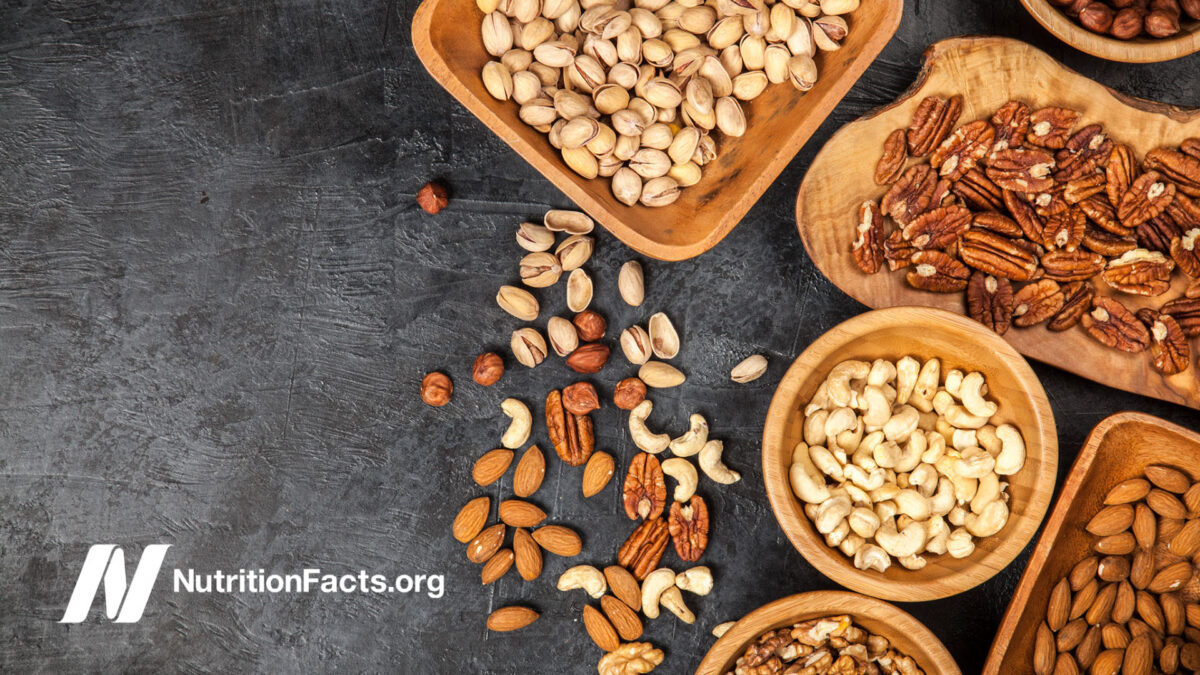
Nuts
The Global Burden of Disease Study, the most comprehensive and systematic analysis of the causes of death ever undertaken, involved nearly 500 researchers from more than 300 institutions in 50 countries and examined nearly 100,000 data sources. The study noted which foods, if added to the diet, might save lives. Eating more vegetables could potentially save 1.8 million lives. How about more nuts and seeds? 2.5 million lives. The study calculated that not eating enough nuts and seeds was the third-leading dietary risk factor for death and disability in the world, killing more people than processed meat consumption, and potentially leading to the deaths of 15 times more people than all those who die from overdoses of heroin, crack cocaine, and all other illicit drugs combined.
PREDIMED, one of the largest interventional dietary trials, randomized more than 7,000 men and women at high cardiovascular risk into different diet groups and followed them for years. One group received a free half-pound of nuts every week—the equivalent of eating about an extra half-ounce of nuts daily compared to what they had been consuming before the study even started. Without making major shifts in their diet, just the minor tweak of adding nuts appeared to cut stroke risk in half. Additionally, regardless of which group subjects had been assigned, those eating more nuts each day had a significantly lower risk of dying prematurely overall.
Which nut is healthiest? Normally, my answer is whichever you’ll eat regularly, but walnuts really do seem to take the lead. They have among the highest antioxidant and omega-3 levels, and beat out other nuts in vitro in terms of suppressing cancer cell growth.
One study found that a single serving of Brazil nuts has been shown to lower your cholesterol levels faster than statin drugs and keep them down even a month after that single meal, and by eating three to four handfuls of pistachios a day for three weeks, men in one study reported significant improvement in blood flow through the penis, accompanied by significantly firmer erections.
Nuts are high in calories, but they can be a lifeline without expanding your waistline, as nut consumption has not been found to lead to the expected weight gain. They may also extend your lifeline: Your life span may be increased by two years by eating nuts regularly—one handful (or about a quarter of a cup) five or more days a week. Just that one simple and delicious act alone may extend your life.
In April 2019, videos claiming “proof” that consuming nuts are bad for health were released. View Dr. Fuhrman’s response to these videos here.For substantiation of any statements of fact from the peer-reviewed medical literature, please see the associated videos below.
Popular Videos for Nuts

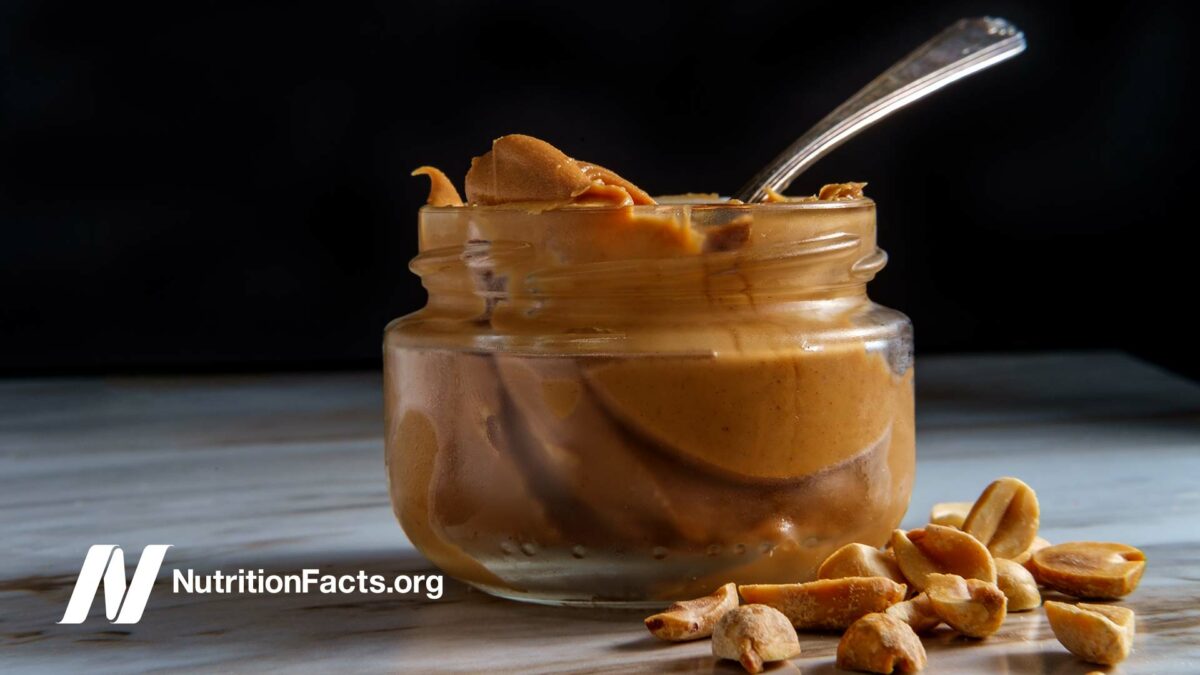
Do the Health Benefits of Peanut Butter Include Longevity?
Why are nuts associated with decreased mortality, but not peanut butter?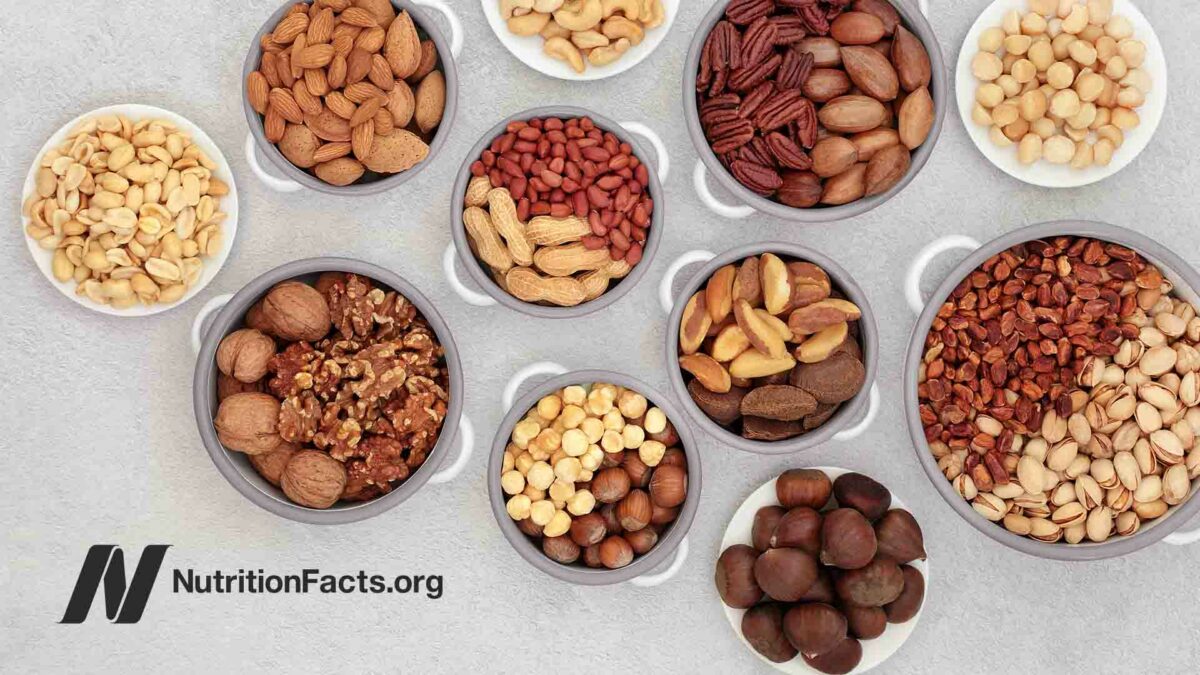
Mixed Nuts Put to the Test for Erectile Dysfunction
Walnuts, almonds, and hazelnuts are put to the test for erectile and sexual function, sperm...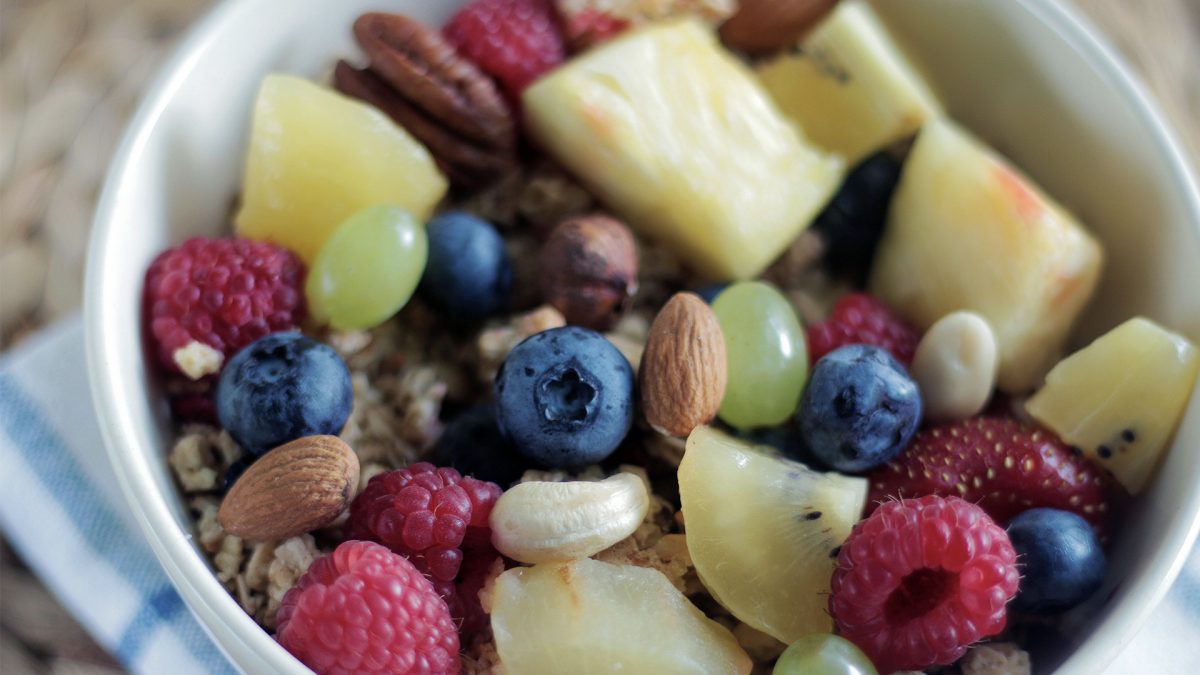
Best Brain Foods: Berries and Nuts Put to the Test
Randomized controlled studies put nuts, berries, and grape juice to the test for cognitive function.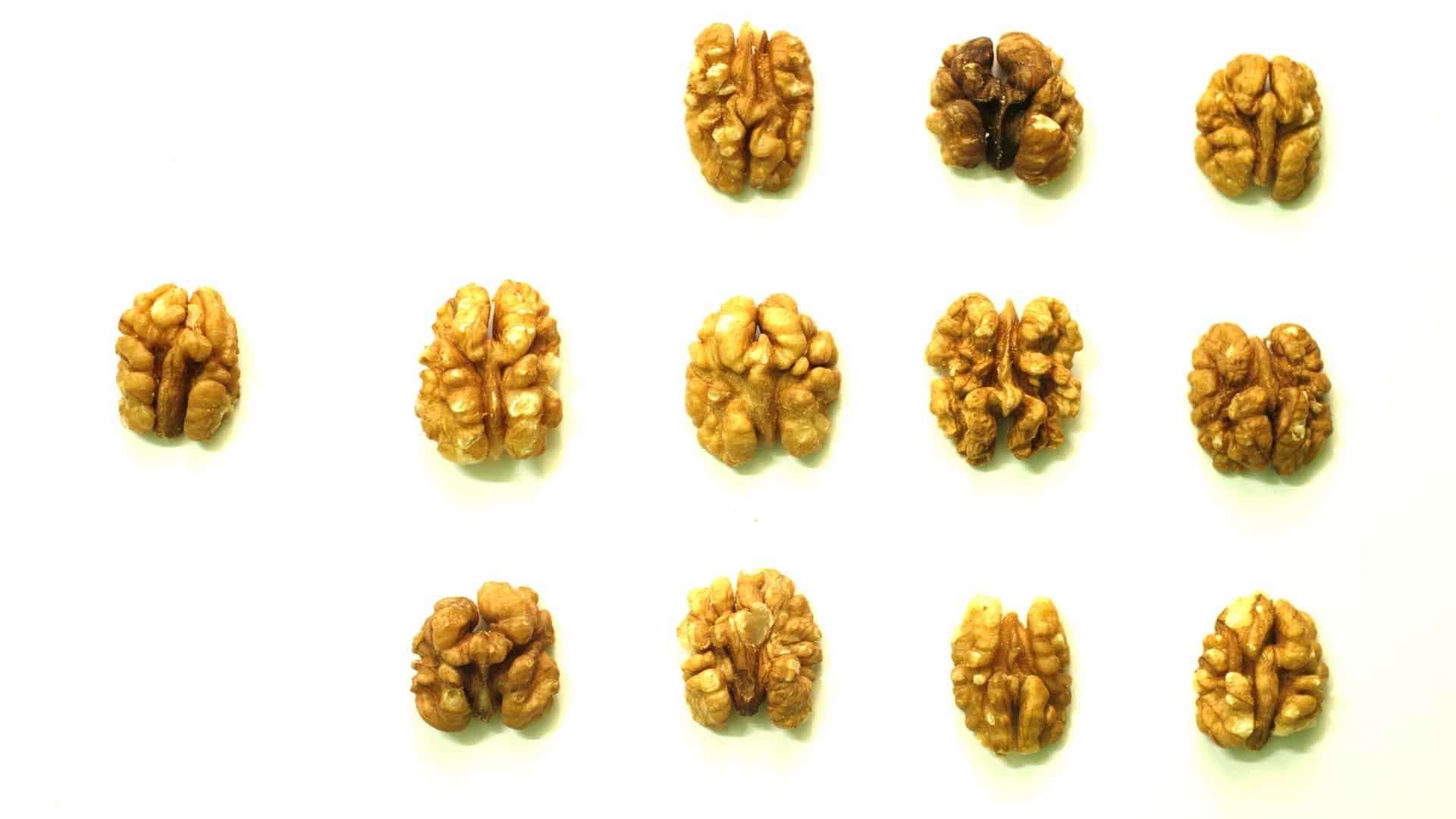
PREDIMED: Does Eating Nuts Prevent Strokes?
A randomized controlled trial found that a Mediterranean-type diet can dramatically lower the risk of...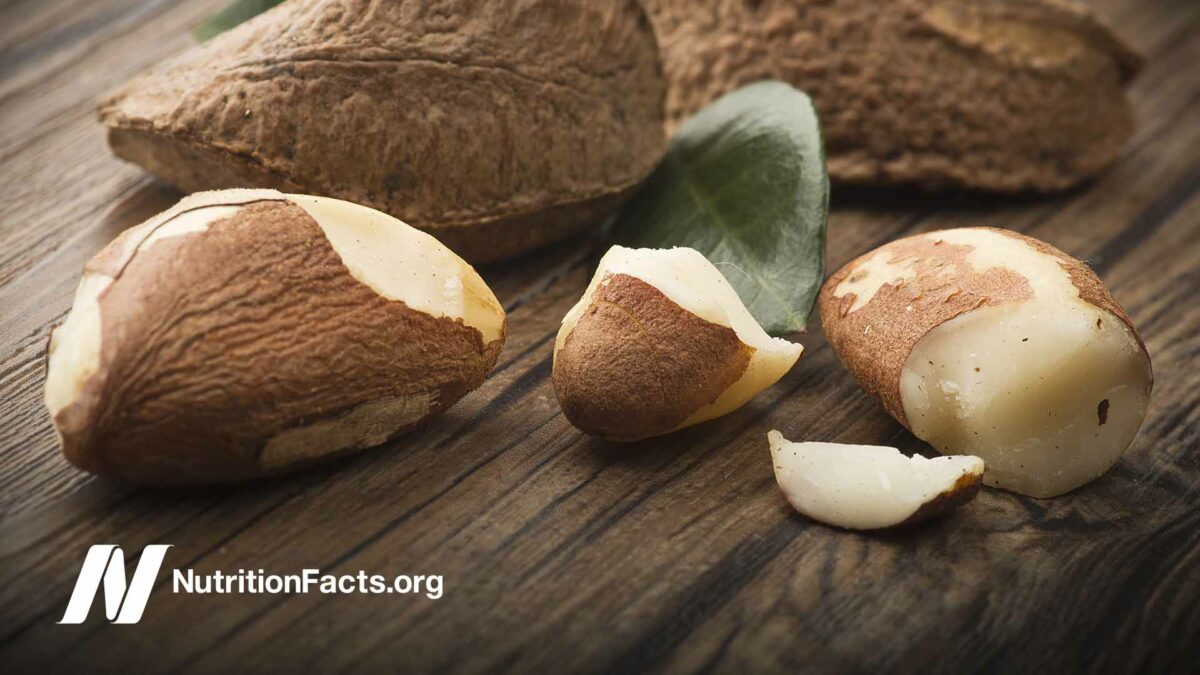
Four Nuts Once a Month
A single serving of Brazil nuts may bring cholesterol levels down faster than statin drugs...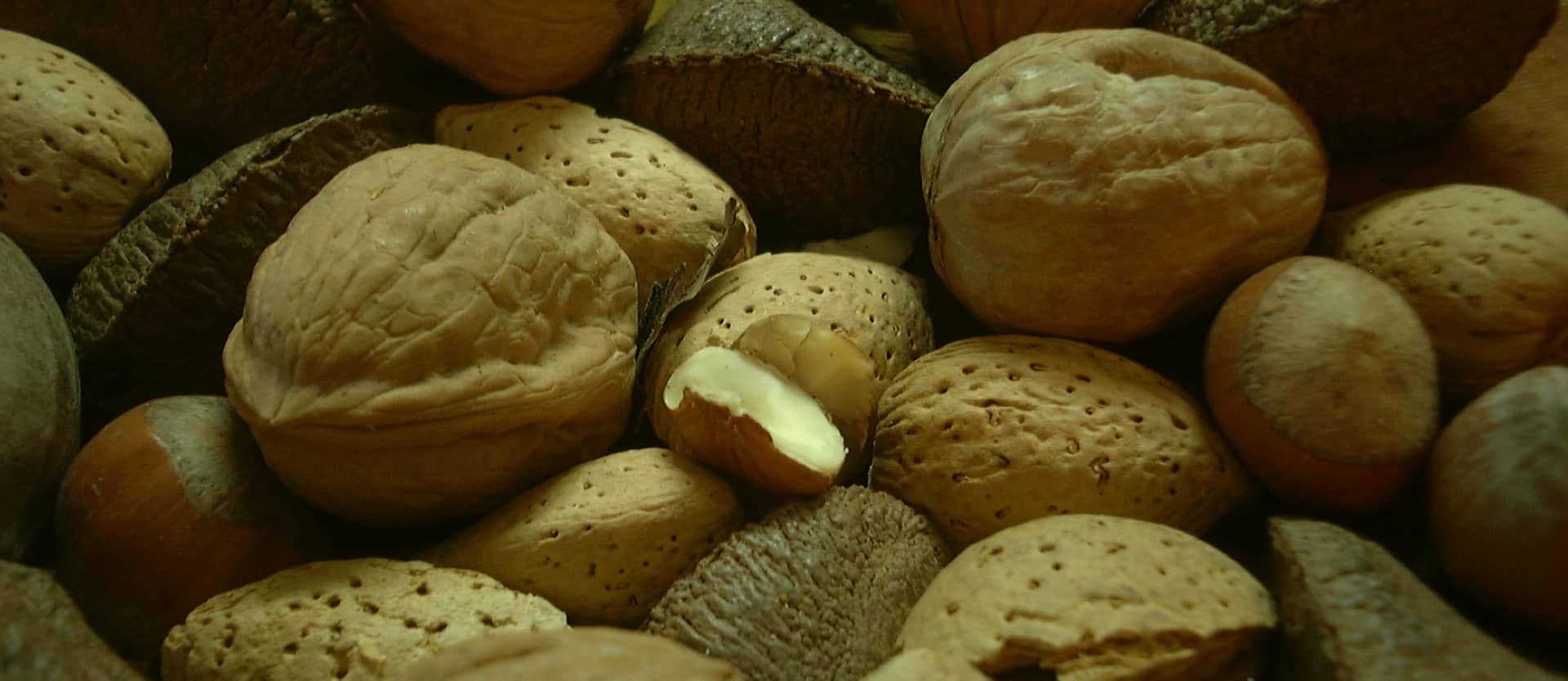
Which Nut Fights Cancer Better?
Within hours the blood of those fed walnuts is able to suppress the growth of...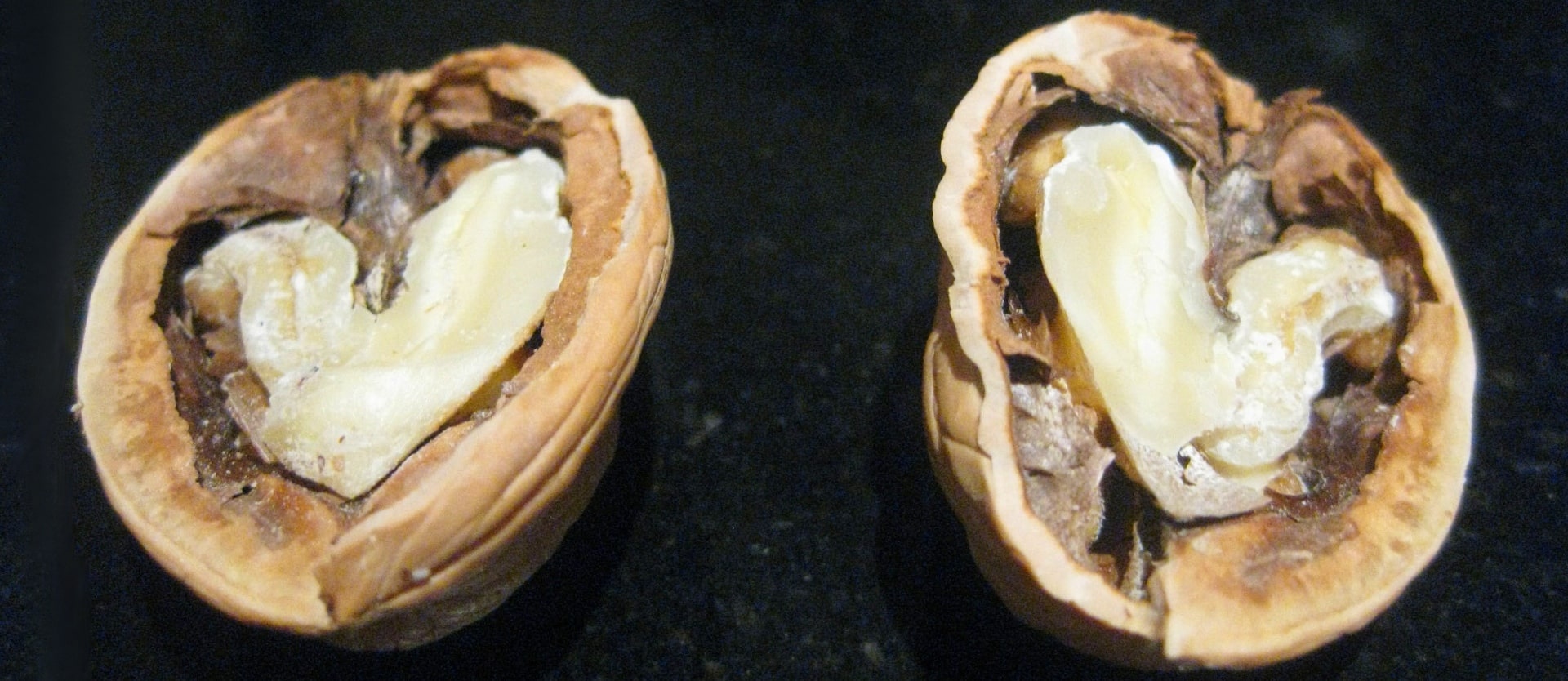
Walnuts and Artery Function
Not eating walnuts may double our risk of dying from heart disease (compared to at...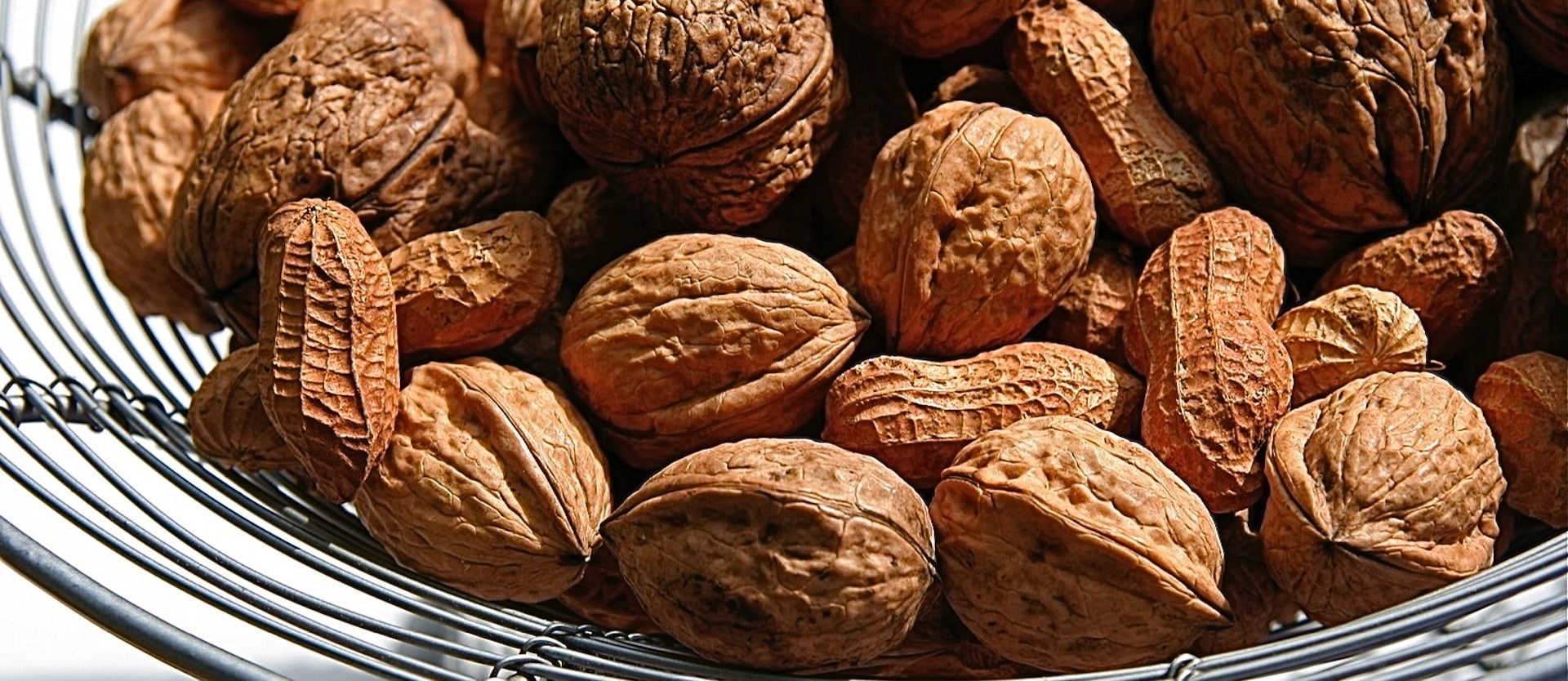
Nuts May Help Prevent Death
Just a few small servings of nuts a week may increase our lifespan and lower...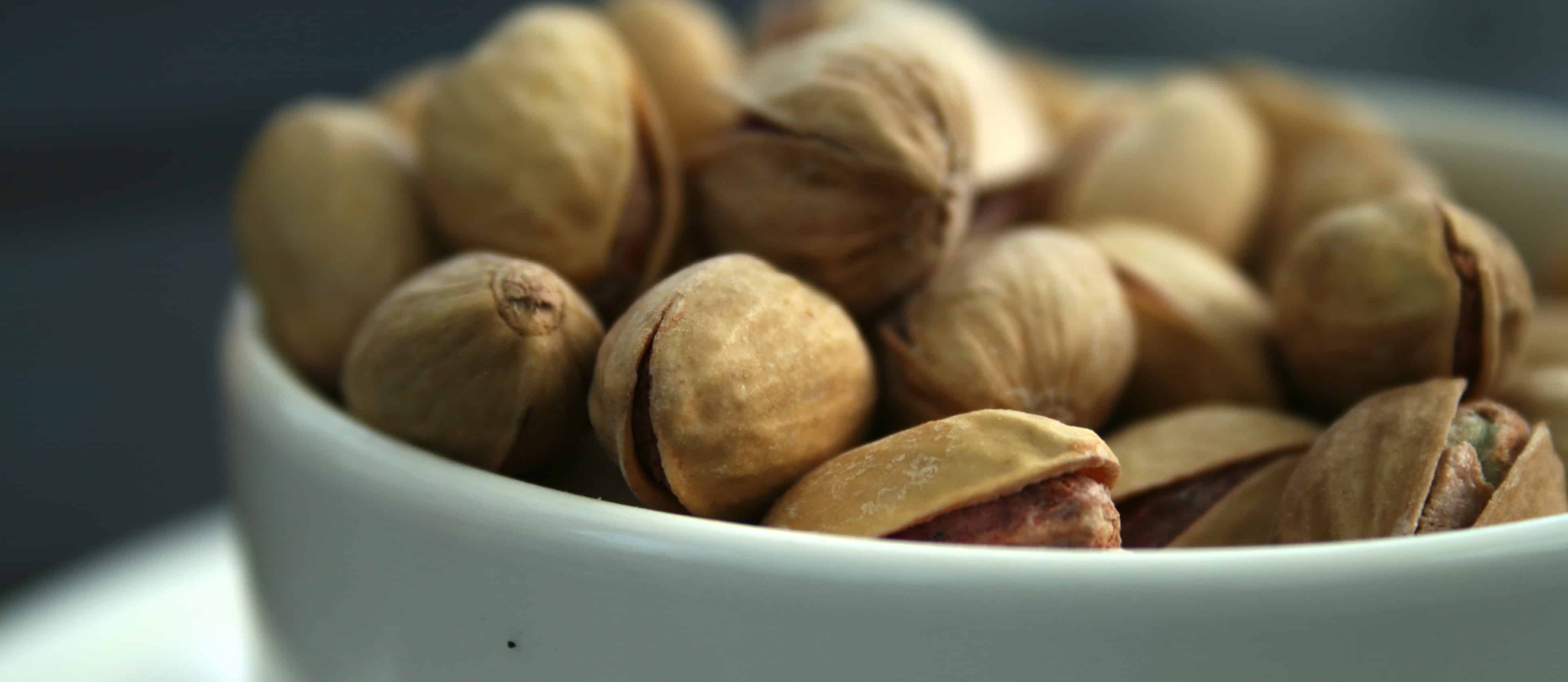
Pistachio Nuts for Erectile Dysfunction
Men eating pistachio nuts experienced a significant improvement in blood flow through the penis accompanied...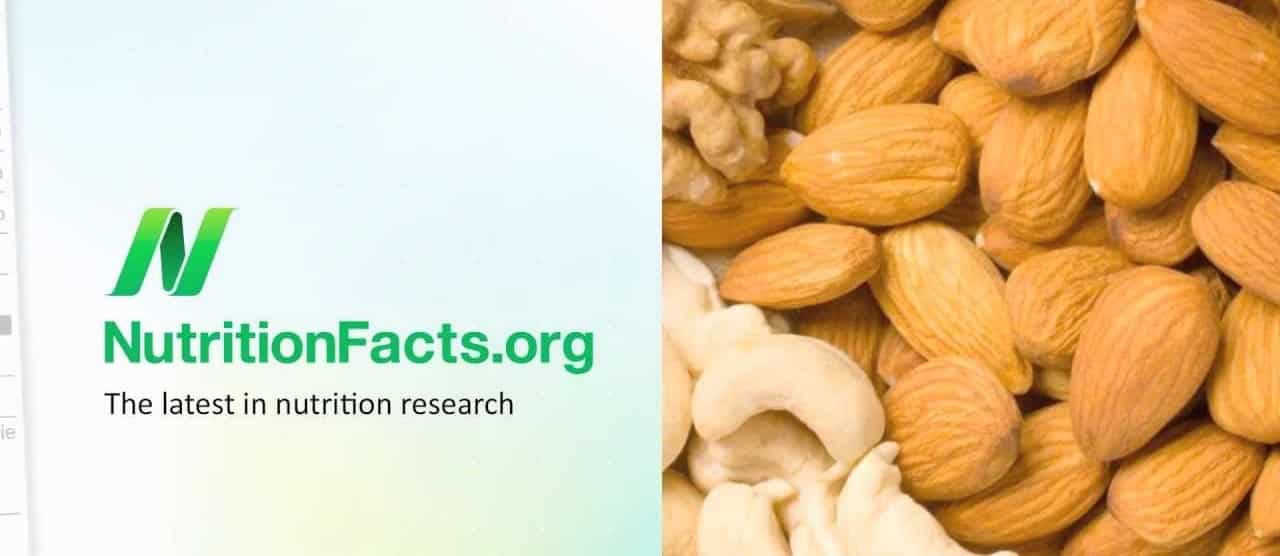
Nuts and Obesity: The Weight of Evidence
Nut consumption does not appear to lead to the expected weight gain.All Videos for Nuts
-

Diverticulosis Diet: Should Nuts, Seeds, and Popcorn Be Avoided?
From a rarity to an epidemic disease, diverticulosis is a disease of fiber deficiency.
-

The Highest Antioxidant: Apple, Bean, Berry, Lentil, or Nut?
The best apple, bean, berry, lentil, and nut are the ones you’ll eat the most of; but if you don’t have a strong preference, which has the highest antioxidant power?
-

Recipe: Lentil–Walnut Burgers with Cheesy Sauce
Our Lentil–Walnut Burgers with Cheesy Sauce are delicious, hearty, and easy to make.
-

A Plant-Based Diet for Weight Loss: Boosting GLP-1 and Restoring Our Natural Satiety Circuit
Why does our natural GLP-1 satiety mechanism fail, and what can we do about it?
-

How to Prevent Wrinkles with Diet
The evidence supports the recommendation to follow a whole food, plant-based diet for healthier looking skin.
-

How Not To Age – Live Presentation
In this live lecture, Dr. Greger offers a sneak peek into his latest book, How Not to Age, a New York Times Best Seller.
-

The Best Diet for COVID and Long-COVID
Healthy plant-based diets appear to help reduce the risk of severe COVID-19 and getting infected in the first place, even independent of comorbidities.
-

Greens, Green Tea, and Nuts Put to the Test for Telomeres
Not all plant foods are linked to less cellular aging based on telomere attrition, and not all animal foods are linked to more.
-

Fasting to Detox
How might we help flush the pollutants stored in our fat that come spilling out into our bloodstream during weight loss?
-

Plant-Based Pregnancy Outcomes and Breast Milk
The composition of breast milk is compared between vegetarian and nonvegetarian women.
-

Strategies to Eat Less Meat
What is the most effective way to help people reduce their meat consumption?
-

Soul Food That’s Good for the Soul
The best of soul food’s origins are tied to the plant-centric West African diet.
-

How Does Oatmeal Help with Blood Sugars?
The prebiotic fiber in oats helps to explain why oatmeal can improve diabetic control.
-

The Best Diet for Fibromyalgia and Other Chronic Pain Relief
Anti-inflammatory diets can be effective in alleviating chronic pain syndromes.
-

Vitamin D May Explain Higher Bone Fracture Risk in Vegans
A combination of low calcium intake and low vitamin D exposure may explain higher bone fracture rates in British vegans.
-

Do Vegans Have Lower Bone Density and More Fractures?
What are the bone fracture rates of omnivores vs. vegetarians vs. vegans?
-

How to Naturally Reduce Wrinkles with Food
Almonds are put to the test in a randomized controlled trial for facial wrinkles.
-

Dietary Approach to Naturally Treating Menopause Symptoms
Specific foods have been shown in randomized controlled trials to improve symptoms like hot flashes.
-

Low-Protein Diets for Parkinson’s Disease
How might we maximize the therapeutic efficiency of levodopa?
-

The Best Diet for Healthy Aging
Swapping just 1 percent of plant protein in place of animal protein was associated with significantly less age-related deficit accumulation.
-

The Best Diet for Treating Atrial Fibrillation
What foods should we eat and avoid to reduce our risk of Afib?
-

How to Cultivate a Healthy Gut Microbiome with Food
Our gut flora is determined by what we eat, for good or for ill.
-

How Much Does Meat Affect Longevity?
If you care about your health so much that it would be unthinkable to light up a cigarette before and after lunch, maybe you should order a bean burrito instead of a meaty one.
-

Are the Health Benefits of Nuts Limited to Those Eating Bad Diets?
Do nut eaters live longer simply because they swap in protein from plants in place of animal protein?
-

Fewer Than 1 in 5,000 Meet Sodium and Potassium Recommended Intakes
A staggering 99.99 percent of Americans fail to get the minimum recommended potassium intake (despite it being perhaps only half of our natural intake) and stay below the recommended sodium intake (even though it may be twice our natural intake).
-

Foods to Help Protect Your Arteries from Saturated Fat
If you’re going to have something unhealthy, is there anything you can eat with it to help mediate the damage it may cause?
-

Blocking the Cancer Metastasis Enzyme MMP-9 with Beans and Chickpeas
Which legumes are best at inhibiting the matrix metalloproteinase enzymes that allow cancer to become invasive?
-

Do the Health Benefits of Peanut Butter Include Longevity?
Why are nuts associated with decreased mortality, but not peanut butter?
-

Glycemic Index of Potatoes: Why You Should Chill and Reheat Them
If you eat potatoes when they’re cold, as in potato salad, or chilled and reheated, you can get a nearly 40 percent lower glycemic impact.
-

Which Foods Are Anti-Inflammatory?
Foods that reduce inflammation. What does an anti-inflammatory diet look like?
-

Foods That Cause Inflammation
Inflammatory markers can double within six hours of eating a pro-inflammatory meal. Which foods are the worst?
-

How Useful Is Personalized Nutrition?
Perhaps it should be less about personalized nutrition and more about taking personal responsibility for your health.
-

Mixed Nuts Put to the Test for Erectile Dysfunction
Walnuts, almonds, and hazelnuts are put to the test for erectile and sexual function, sperm count, and semen quality.
-

How to Heal a Leaky Gut with Diet
The recommended diet for leaky gut treatment. Which foods and food components can boost the integrity of our intestinal barrier?
-

Plant-Based Eating Score Put to the Test
How can you get a perfect diet score?
-

Are Baruka Nuts the Healthiest Nut?
How do barukas, also known as baru almonds, compare with other nuts?
-

Should We Be Concerned About Aflatoxin?
Is “toxic mold syndrome” a real thing? And, what do we do about toxic mold contamination of food?
-

How Much Longer Do You Live on Statins?
What are the pros and cons of relative risk versus absolute risk versus number-needed-to-treat versus average postponement of death taking cholesterol-lowering statin drugs?
-

Pine Mouth Syndrome: Prolonged Bitter Taste from Certain Pine Nuts
Why do some pine nuts cause a bad taste in your mouth that can last for weeks?
-

How to Boost Brain BDNF Levels for Depression Treatment
Fasting and exercise can raise BDNF levels in our brain, but this can also be achieved by eating and avoiding certain foods.
